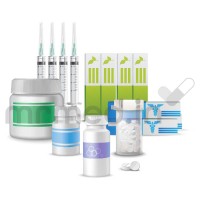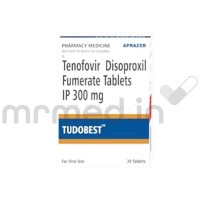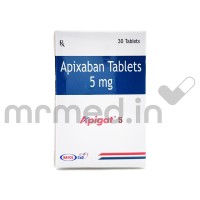Cytoblastine injection is an anti-cancer drug belonging to the class of mitotic inhibitors, containing the active ingredient vinblastine. This medication is used in combination with other medicines for the treatment of Hodgkin’s and non-Hodgkin’s lymphoma, testicular cancer, breast cancer, and kaposi’s sarcoma. Hodgkin’s disease and non-Hodgkin’s disease refers to the type of blood cancers.
This injection should be used with caution in patients with a history of nerve damage, respiratory disease, or gastrointestinal disorders. Special care is needed if you are taking other medicines, as some could interact with this drug. For example the use of erythromycin may increase the side effects of this drug. In case if you are undergoing radiotherapy in the liver area, your doctor will delay giving you this medicine. During the treatment, your doctor may periodically monitor your white blood cell counts, platelets, blood sugar, electrolytes and kidney parameters to prevent serious complications. This medicine has the potential to cause heart problems when combined with other anticancer medicine like bleomycin or cisplatin. Report to your doctor if you experience any hypersensitive reactions like itchy skin or rashes, while taking this medicine.
As there is a risk of birth defects, women of childbearing potential should use effective contraception methods during treatment with this drug. If you're pregnant or breastfeeding women, you may plan to have a baby or think you may be pregnant. Please consult with your doctor for more advice before taking this medicine. Do not drive or use machines if you experience any side effects which may lessen your ability to do so. It is advised not to use this injection if you are allergic to this drug or any of its ingredients, in case you have a bacterial infection which is not under control, and if your blood tests show that you do not have enough WBC to fight infection. This drug may lead to changes in your blood cells, so your doctor will take blood samples to monitor for these and also to check how well your liver is working. Inform to the doctor if you have been diagnosed with liver disorders, heart failure, high blood cholesterol levels, or hypertension before starting this treatment.
- Hodgkin’s lymphoma
- Non-Hodgkin’s lymphoma
- Testicular cancer
- Breast cancer
- Kaposi’s sarcoma
Therapeutic Effects of Cytoblastine Injection
Pregnancy
Cytoblastine injection is not recommended for pregnant women as it may cause fetal harm. Consult your doctor if you are pregnant or planning for pregnancy during the treatment.
Breast Feeding
Breastfeeding is not recommended in patients taking Cytoblastine injection because the medicine passes into the breast milk in small amounts and may harm your baby.
Lungs
It is not known whether Cytoblastine injection can be administered to patients with lung problems. Consult your doctor if you have any lung diseases before starting the treatment.
Liver
Inform your doctor if you have any liver problems before taking Cytoblastine injection. Regular monitoring of liver function tests is recommended.
Alcohol
Consuming alcohol may affect the effectiveness of Cytoblastine injection. Stop consuming alcohol if you are taking this medicine.
Driving
It is unsafe to drive vehicles or operate heavy machinery after taking Cytoblastine injections, it may cause dizziness and impair your concentration.
Serious
- Severe allergic reactions (difficulty in breathing or swallowing, swelling of hands, feet, lips, mouth, or throat, itchy rash)
- Swelling or pain at the site of injection (during or immediately after the injection)
Common
- Low blood counts
- Convulsions
- Mental depression
- Tiredness
- Diarrhea
- Loss of appetite
- Nausea, vomiting
- Stomach cramps
- Hair loss
It is generally recommended to avoid drinking alcohol while taking Cytoblastine injection, as alcohol can increase the risk of side effects such as nausea, vomiting, and liver damage.
Hair loss from Cytoblastine injection is usually temporary, and hair growth typically resumes after treatment is completed.
Cytoblastine injection works by stopping the cancer cells from separating into 2 new cells. So it blocks the growth of cancer.
Check with your doctor immediately if you notice any unusual bleeding or bruising, black stools, blood in urine, or pinpoint red spots on your skin. Be careful when using sharp objects or participating in activities that may result in injury.
Cytoblastine injection is primarily metabolised in the liver, and its elimination from the body is mainly through the bile and faeces. Only a small amount of the drug is eliminated through the urine.
This drug can make the skin more sensitive to sunlight, leading to sunburn, blistering, or skin discoloration. It's important to use sunscreen and protective clothing while being exposed to sunlight.
Molecule name: Vinblastine | Therapeutic class: Anti-cancer |
Pharmacological class: Mitotic inhibitors | Indications: 1. Hodgkin’s lymphoma 2. Non-Hodgkin’s lymphoma 3. Testicular cancer 4. Breast cancer 5. Kaposi’s sarcoma |







-200x200.jpg)


